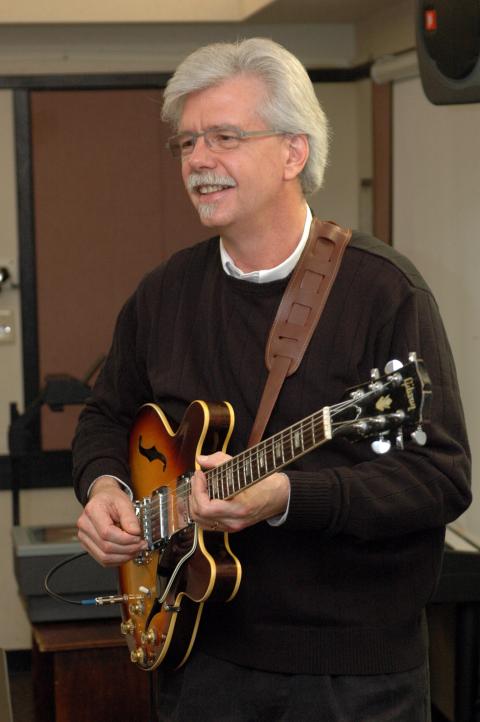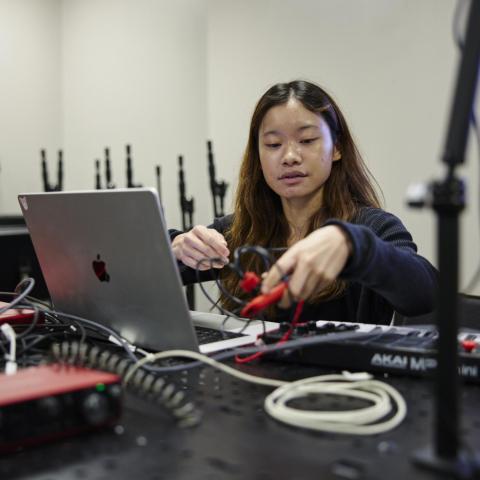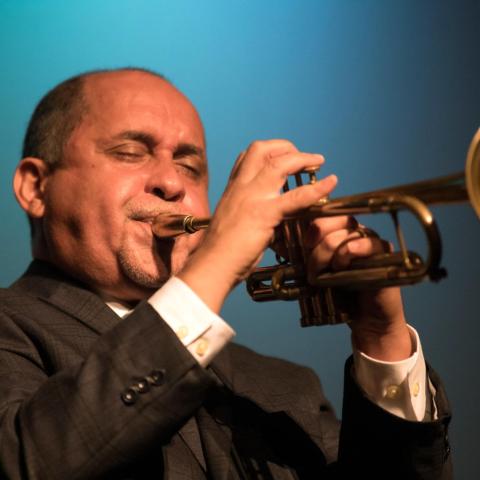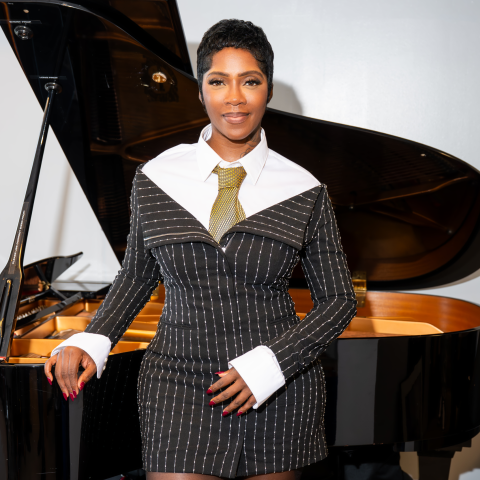Faculty Profile: Bob Doezema

Bob Doezema
Phil Farnsworth
Hearing contemporary writing and production professor Bob Doezema tell his story, it becomes apparent why he’s considered an iconic figure in Berklee’s development. As director of the Five-Week Summer Performance program and the author of books including the Arranging 1 and Summer Program texts, he has played a crucial role in Berklee’s curriculum and the opportunities available to students.
Born in Kalamazoo, Michigan, Doezema caught the music bug from his father, an accomplished church organist. “My sisters and I all took piano lessons growing up, and my dad created individual practice routines for each of us,” he remembers. “I was expected to practice every morning. I’d hear that knock on the door around 6:00 A.M. and I knew it was time.”
Doezema’s family moved to Ann Arbor when he was in junior high, where he played clarinet in the school band before being seduced by the sounds of rock, blues, and jazz. “Being near Detroit in the 1960s was pure excitement,” says Doezema. “Motown was right there, and the blues of Chicago was just around the corner. Plus there was a huge local rock scene with bands like the Amboy Dukes and Mitch Ryder. Bob Seger played my high school prom.” Like other baby boomers, he was turned onto the guitar by the Beatles’ 1964 premiere on the Ed Sullivan Show. His first guitar was a Gibson acoustic, and in his teen years, he began gigging regularly. “As my classmates would head home after school on Friday, I’d be going out of town to play fraternity parties,” he recalls fondly.
After high school, Doezema enrolled at the University of Michigan-Ann Arbor, and began taking liberal arts courses. He also explored jazz—particularly the heady electric albums of Miles Davis with John McLaughlin on guitar. “When it came time to pick a major, music had been lurking in the back of my mind, but the university didn’t have any kind of contemporary music program.” An advisor pointed him toward Berklee.
Doezema sold virtually everything he owned—except his guitar and amp—to enroll at Berklee in the early 1970s. “At the time there were only three majors: music education, composition, and performance. I chose composition because I really wanted to write and arrange, and it gave me the chance to study with amazing professors like Les Harris and Herb Pomeroy.”
His arrival at Berklee also marked the beginning of a connection with Pat Metheny H’90 that continues to this day. “Pat was one of my first guitar teachers at Berklee. It was quite an amazing experience using his early tunes as learning tools.” Doezema followed Metheny’s career closely, attending hundreds of concerts. (When Tufts University awarded Doezema a scholarship to pursue a master’s degree in ethnomusicology, Metheny’s music became the subject of his 1996 master’s thesis.)
After graduating from Berklee in 1976, Doezema discussed his interest in music education with professor Ted Pease. After a few months of playing on the road, he accepted a teaching job and was soon helping to expand Berklee’s curriculum. “There was a growing need to teach rock and pop styles, but there was no systemized way of doing it,” he explains. “A group, including Ted Pease, John Bavicchi, Ken Pullig, and me, had to put our brain power together to figure it out.” Doezema authored the Arranging 1 workbook, the basis of Berklee’s arranging curriculum to this day.
One of Doezema’s most significant contributions has been his role in developing the school’s Summer Performance Program. “There had been a seven-week program prior to my involvement, and Ted [Pease] wanted my input,” he says. “Students were getting burnt out toward the end of the program, so I recommended reducing it to five weeks.” In 1986, Summer Programs became a separate department with Doezema and Rob Rose (then vice president of Summer Programs) at the helm. Doezema shouldered the massive job of writing complete scores for 25 pop-rock tunes for student ensembles and authored the Summer Performance theory handbook.
During the 1980s and 1990s, Doezema balanced his Summer Program duties along with a full undergraduate teaching schedule. Over the years, students have coveted seats in his arranging, groove writing, and jazz improvisation classes. He also provided input on equipment needs across the campus. “There was a laundry list of equipment needs,” he says. “In the beginning, we had to buy portable cassette players for teachers to lug around because the ensemble rooms had no playback systems.” Doezema and Rose worked with Concert Operations to install permanent PA systems, drum kits, amplifiers, and more, in classrooms.
In 2016, Rose and Doezema will mark their thirtieth year directing Berklee’s summer programs. Rose acknowledges Doezema as “one of the most dedicated, caring, and talented people I’ve worked with. He’s an amazing guitarist, arranger, composer, and educator. You don’t get a lot of opportunities to work with folks like that.”
Though he’s well versed in jazz and world music, Doezema’s affection for rock, blues and soul are rooted in his heart. He has shared the bandstand with luminaries including Al Kooper, John Sebastian, and Paul Rodgers of Bad Company. “Some of my most memorable gigs have been right at home,” he’s quick to note. “Playing at Berklee with people like Gloria Estefan, Steve Gadd, Gary Burton, and Grand Mixer DXT has been a thrill. But even more exciting are the guests we’ve brought to Berklee to perform with students. Watching someone like Wynton Marsalis or Chaka Khan onstage jamming with students is the ultimate reward.”




